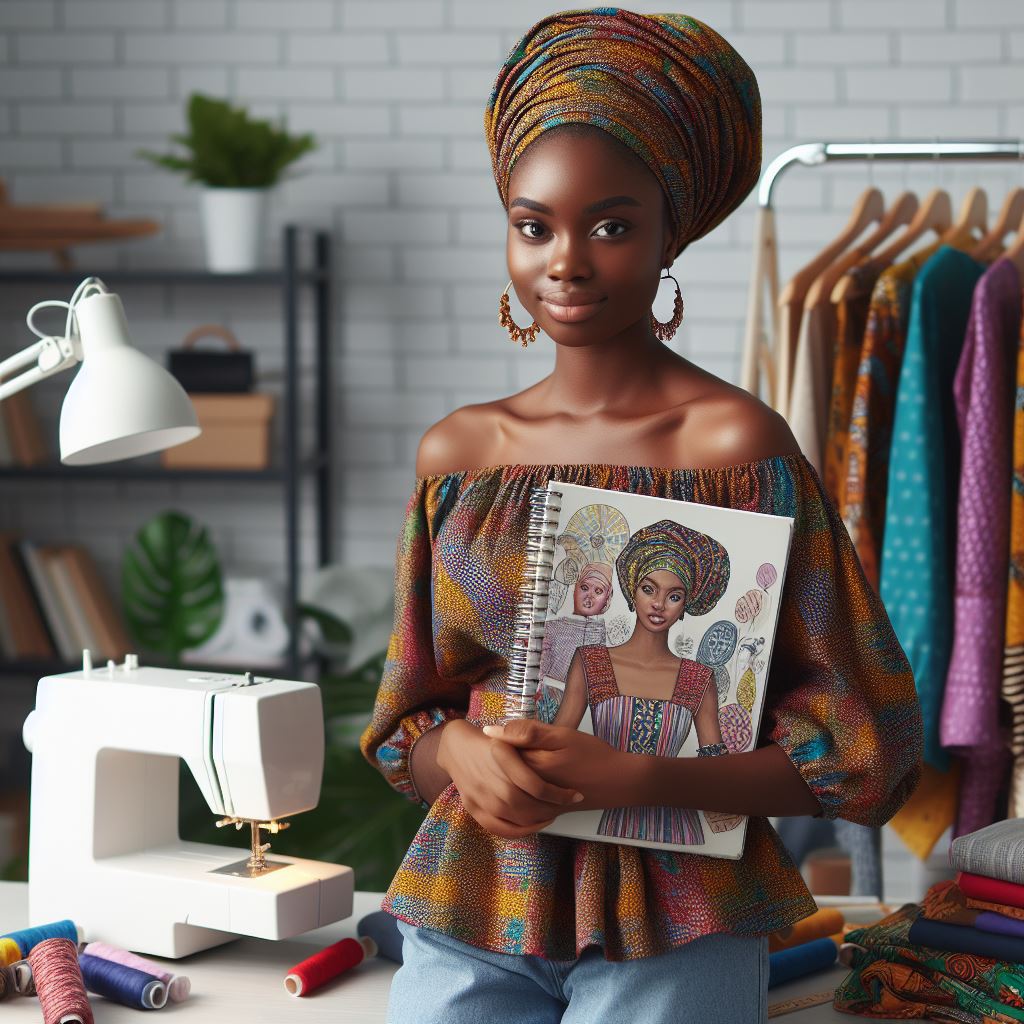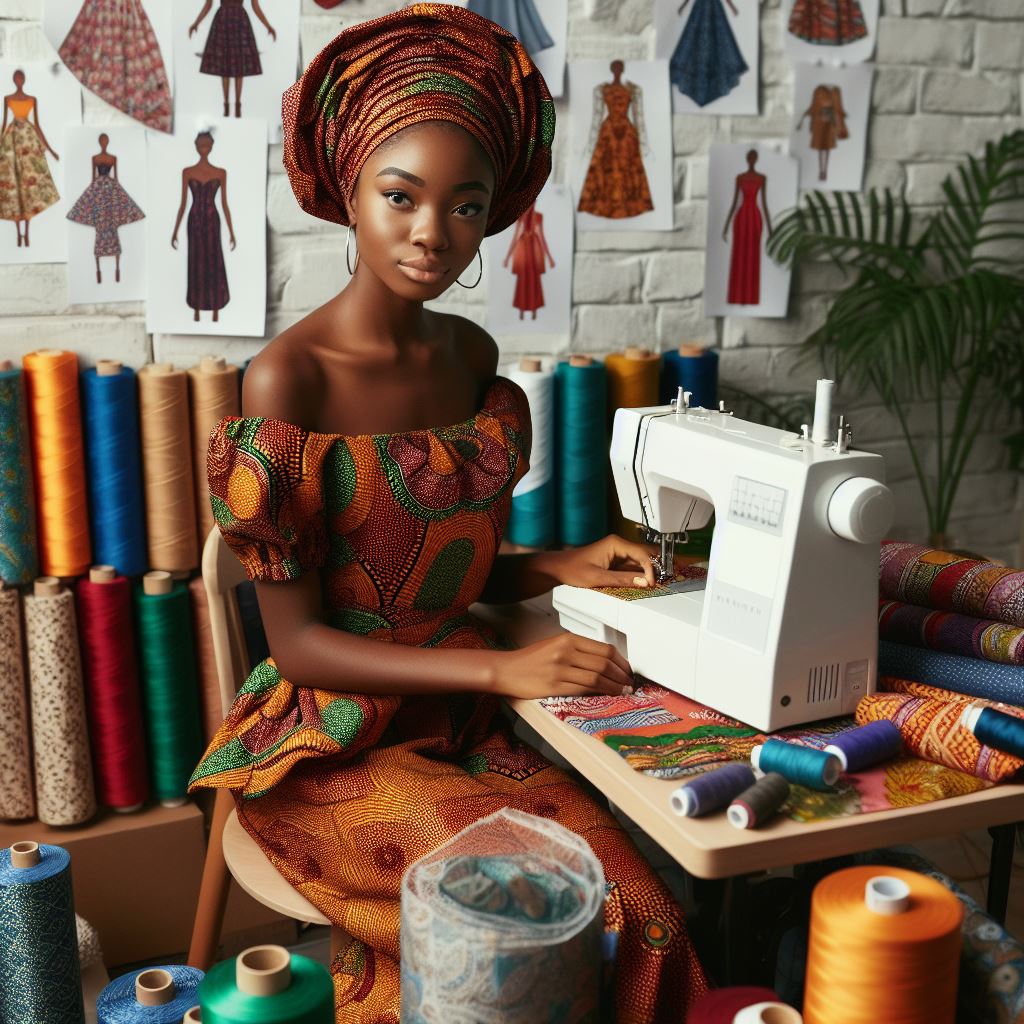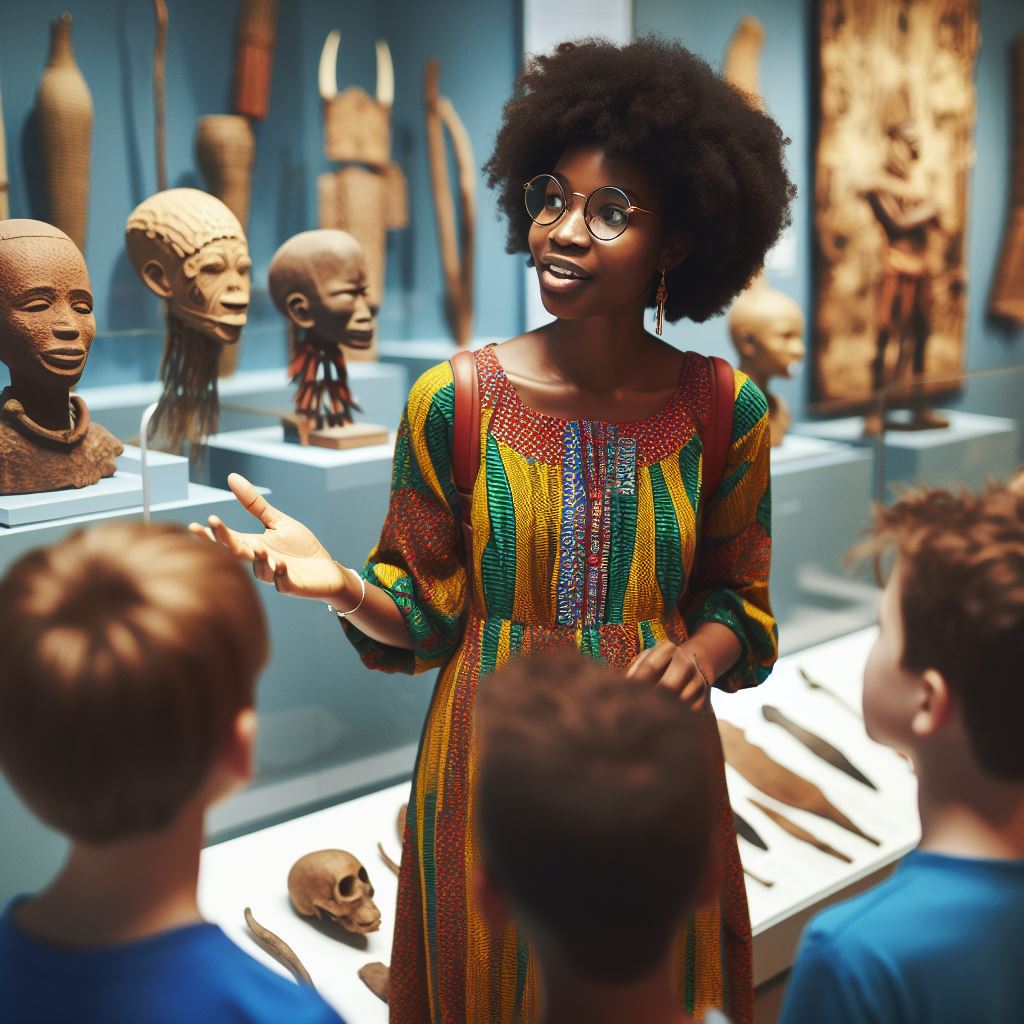Introduction
Welcome to the realm where creativity meets craftsmanship—the world of fashion education in Nigeria.
In a country where fashion is more than just clothing—it’s a cultural expression and a burgeoning industry—fashion schools and programs hold immense significance.
As Nigeria’s fashion industry continues to gain global recognition and influence, there’s a palpable surge of interest among aspiring designers and entrepreneurs.
The importance of fashion schools and programs cannot be overstated.
These institutions serve as the nurturing grounds for the next generation of fashion innovators.
From the bustling streets of Lagos to the serene landscapes of Abuja, fashion schools across Nigeria offer comprehensive and diverse programs.
Beyond teaching design techniques and sewing skills, these institutions instill business acumen, marketing strategies, and industry insights.
In a rapidly evolving industry, where trends shift and creativity reigns supreme, the role of fashion education becomes even more crucial.
By providing a platform for experimentation, collaboration, and learning, fashion schools in Nigeria are shaping the future of the industry.
Top Fashion Schools in Nigeria
Top Fashion Schools in Nigeria
Fashion education in Nigeria has undergone a remarkable transformation, with several institutions emerging as leaders in the field:
Fashion Designers Association of Nigeria (FADAN) School of Fashion Design and Technology
FADAN’s school is renowned for its comprehensive curriculum covering design, pattern making, and garment construction. With a focus on hands-on learning and practical skills development, FADAN prepares students for successful careers in the fashion industry.
School of Fashion and Design (SFD)
SFD stands out for its innovative approach to fashion education, blending creativity with practicality. Its curriculum encompasses a wide range of subjects, from fashion illustration to textile design, ensuring students acquire a holistic understanding of the industry.
Zaris Fashion and Style Academy
Zaris is celebrated for its hands-on approach to learning, offering programs that focus on both design and business aspects of fashion.
With experienced instructors and state-of-the-art facilities, Zaris equips students with the skills and knowledge needed to excel in the competitive fashion market.
Rhoda Michaels Fashion Academy (RMFA)
RMFA prides itself on its personalized approach to education, providing tailored programs to suit students’ individual interests and career goals. The academy’s experienced faculty members mentor students throughout their academic journey, fostering creativity and innovation.
Nigerian Institute of Fashion Technology (NIFT)
NIFT is recognized for its rigorous curriculum covering all aspects of fashion design and production. From fashion history to trend forecasting, NIFT offers a comprehensive education that prepares students for the challenges of the fashion industry.
Information on Their Curriculum, Faculty, Facilities, and Reputation
These top fashion schools offer comprehensive curricula that cover a wide range of topics, including design, pattern making, garment construction, and business management.
Faculty members at these institutions are experienced professionals with expertise in various aspects of the fashion industry. They mentor students, providing guidance and support as they develop their skills and pursue their passions.
State-of-the-art facilities, like design studios, sewing labs, and computer labs, provide students with essential tools and resources.
These schools have earned reputations for excellence in fashion education, with graduates going on to achieve success in various areas of the industry.
Any Notable Alumni or Accomplishments of the Schools
Notable alumni of these fashion schools have made significant contributions to Nigeria’s fashion industry.
They have launched successful fashion labels, showcased their collections at prestigious fashion events, and received recognition for their innovative designs.
Their accomplishments serve as inspiration for current and future students, demonstrating the potential for success in the dynamic and ever-evolving world of fashion.
Read: Exploring Semiotics in Communication Arts
Fashion Programs Offered
Various Fashion Programs Offered by the Top Schools
Fashion schools in Nigeria offer an extensive array of programs, catering to the diverse interests and career aspirations of aspiring fashion professionals
Fashion Design
The cornerstone of fashion education, focusing on garment construction, pattern making, and design principles. This program equips students with the technical skills and creative vision necessary to bring their design ideas to life.
Fashion Marketing and Management
This program delves into the business side of the fashion industry, providing students with a comprehensive understanding of branding, marketing strategies, retail management, and consumer behavior.
Graduates of this program are well-equipped to pursue careers in fashion marketing, merchandising, and management roles.
Textile Design
Textile design is a specialized program that explores the art and science of creating fabrics. Students learn about various techniques for fabric manipulation, dyeing, printing, and surface embellishments.
This program prepares students for careers as textile designers, where they can work in fashion, interior design, or textile manufacturing industries.
Fashion Merchandising
Fashion merchandising is a program that focuses on the business aspects of the fashion industry. Students learn about buying, trend forecasting, visual merchandising, and retail operations.
This program equips students with the skills and knowledge needed to excel in roles such as buyers, merchandisers, and retail managers.
Fashion Styling
Fashion styling is a program that teaches students how to create visually compelling looks for various contexts, including editorial, commercial, and personal styling.
Students learn about styling techniques, trend analysis, and client communication. Graduates of this program can pursue careers as fashion stylists for magazines, advertising agencies, celebrities, or personal clients.
Fashion Entrepreneurship
Fashion entrepreneurship is a program that prepares students to launch and manage their fashion businesses effectively.
Students learn about business planning, financial management, marketing strategies, and industry regulations.
This program empowers students to become successful fashion entrepreneurs, whether they want to start their own fashion label, boutique, or consultancy firm.
Different Specializations or Areas of Focus Available to Students
Within these programs, students can choose to specialize in various areas based on their interests and career goals. Specializations may include:
- Haute Couture: Specializing in high-end, custom-made fashion pieces for elite clientele.
- Ready-to-Wear: Specializing in designing and producing mass-market fashion collections for retail.
- Sustainable Fashion: Specializing in eco-friendly and socially responsible fashion practices.
- Costume Design: Specializing in creating costumes for film, television, theater, or historical reenactments.
Information on the Duration and Structure of the Programs
The duration of fashion programs in Nigeria varies depending on the level of study and institution.
- Certificate programs typically range from one to two years.
- Diploma programs usually last for two to three years.
- Bachelor’s degree programs typically span four years.
The structure of these programs often includes a combination of theoretical coursework, practical studio sessions, and industry internships.
Students are encouraged to develop their design aesthetics, technical skills, and business acumen through hands-on learning experiences and real-world projects.
Fashion schools in Nigeria are committed to providing students with a well-rounded education that prepares them for success in the competitive fashion industry.
Through rigorous academic programs, experienced faculty members, and state-of-the-art facilities, these institutions nurture the next generation of fashion innovators and leaders.
Read: Developing Critical Thinking in Language Arts
Admission Requirements
When considering applying to a top fashion school in Nigeria, it is essential to be aware of the admission requirements. Each institution may have specific criteria that applicants must meet in order to be considered for admission.
Outline the admission requirements for the top fashion schools in Nigeria
- Minimum Educational Qualifications: Most fashion schools in Nigeria require applicants to have a minimum of five credits at the SSCE level, including Mathematics and English Language.
- Portfolio Submission: Some schools may require applicants to submit a portfolio showcasing their creative work, such as sketches, designs, or samples of previous projects.
- Entrance Exams: Certain institutions may also require prospective students to take an entrance exam to assess their knowledge and skills in fashion-related subjects.
- Interview: Many fashion schools in Nigeria conduct interviews with potential students to gauge their passion for fashion and determine their suitability for the program.
- Work Experience: Some schools may consider applicants with prior work experience in the fashion industry or related fields as part of their admission criteria.
The application process, deadlines, and any entrance exams or portfolios required:
Applying to a fashion school in Nigeria typically involves filling out an application form.
providing relevant documents, and paying an application fee. Deadlines for applications vary depending on the institution, so it is crucial to keep track of these dates and submit your application on time.
Some schools may require applicants to submit a portfolio of their work, which should demonstrate their creativity, skills, and passion for fashion. This portfolio is often a crucial part of the application process and can greatly impact the chances of acceptance.
In addition to submitting a portfolio, candidates may also be required to take an entrance exam to assess their knowledge of fashion concepts and techniques. It is essential to prepare thoroughly for these exams to showcase your understanding and skills in the field.
Interviews are another common component of the application process for fashion schools in Nigeria. Applicants may be invited to an interview where they can discuss their interest in fashion, goals, and aspirations with the admissions committee.
Offer tips for prospective students on how to prepare and increase their chances of acceptance
- Begin preparing for the application process well in advance to ensure you have enough time to gather all required documents.
- Understand the specific requirements and expectations of each fashion school you apply to and tailor your application accordingly.
- Demonstrate your love for fashion through your portfolio, personal statement, and interview responses to impress the admissions committee.
- Before submitting your portfolio or attending an interview, seek feedback from fashion industry professionals to improve your work.
- Keep track of all deadlines, requirements, and important dates related to the application process to avoid missing opportunities.
- If an entrance exam is required, practice sample questions, review relevant material, and seek help if needed to prepare well.
Prospective students can increase acceptance chances by following tips and understanding admission requirements for top fashion schools.
Read: Student Experiences: Life in Communication Arts

Scholarships and Financial Aid
When it comes to pursuing a fashion education in Nigeria, scholarships and financial aid can play a crucial role in helping students achieve their dreams. Here is a look at some of the opportunities available for those interested in studying fashion
Scholarships
Several organizations and institutions offer scholarships specifically for students pursuing a career in the fashion industry. These scholarships can cover tuition fees, accommodation, and even living expenses. Some popular scholarships for fashion students in Nigeria include:
- Aso Villa Demo Day Fashion Grant: This grant is awarded to fashion entrepreneurs in Nigeria who are looking to expand their business. It provides financial support to help them grow and succeed in the industry.
- Lagos Fashion Academy Scholarship: This scholarship is open to talented individuals who demonstrate a passion for fashion and design. It covers tuition fees for fashion design programs at the Lagos Fashion Academy.
- Fabrics for Freedom Scholarship: This initiative provides financial assistance to fashion students who are in need of support to complete their education. It covers a portion of tuition fees and material costs.
Financial Aid Programs
In addition to scholarships, students can also explore financial aid programs offered by schools and colleges. These programs provide assistance in the form of grants, work-study opportunities, and loans. Some financial aid options for fashion students in Nigeria include
- Work-Study Programs: Some schools offer work-study programs that allow students to work part-time while pursuing their education. This can help students gain valuable work experience and earn money to cover their expenses.
- Student Loans: Students can also apply for student loans to help cover the cost of their education. These loans typically have lower interest rates and flexible repayment options to make them more accessible to students.
- Grants: Various grants are available to fashion students in Nigeria, which can help cover tuition fees, research expenses, and other educational costs. Students can apply for these grants through their schools or external organizations.
Managing Finances
While pursuing a fashion education in Nigeria, it is essential for students to manage their finances effectively. Here are some tips on how to handle finances while in school
- Create a Budget: Develop a budget that outlines your income, expenses, and savings goals. This will help you track your spending and stay within your financial limits.
- Save Money: Look for ways to save money on textbooks, supplies, and other school-related expenses. Consider buying used textbooks or exploring student discounts to cut costs.
- Part-Time Work: Consider taking on part-time work or freelance opportunities to earn extra income. This can help you cover your living expenses and reduce the need for loans.
- Seek Financial Advice: Don’t hesitate to seek guidance from financial advisors or counselors at your school. They can provide valuable insights on managing money, budgeting, and planning for the future.
By taking advantage of scholarships, financial aid programs, and effective financial management strategies, students can pursue their passion for fashion without worrying about the financial burden.
With the right support and resources, aspiring fashion professionals in Nigeria can turn their dreams into reality.
Read: Communication Arts: Balancing Theory and Practice
Transform Your Career with Expert Guidance
Get personalized mentorship consulting that’s tailored to your unique path. Our expert advice is actionable and exclusive.
Get StartedIndustry Partnerships and Opportunities
When it comes to industry partnerships and opportunities, top fashion schools in Nigeria understand the importance of collaboration with industry professionals and companies.
These partnerships play a crucial role in providing students with valuable real-world experience and networking opportunities.
Partnerships and Collaborations
- Many top fashion schools in Nigeria have established partnerships with renowned fashion designers, brands, and industry experts.
- These collaborations allow students to learn from experienced professionals, stay updated on industry trends, and gain practical insights into the fashion business.
- By working closely with industry professionals, students can develop valuable skills and knowledge that will prepare them for successful careers in the fashion industry.
Internship Opportunities
- Top fashion schools in Nigeria offer internship opportunities with leading fashion houses, design studios, and retail companies.
- Internships provide students with hands-on experience, allowing them to apply their classroom knowledge in a real-world setting.
- Through internships, students can build professional connections, receive mentorship from industry experts, and enhance their resumes.
Job Placement Programs
- Many top fashion schools in Nigeria have robust job placement programs that help students secure employment after graduation.
- These programs assist students in finding job opportunities that align with their skills, interests, and career goals.
- Job placement programs also help students build their professional networks and connect with potential employers in the fashion industry.
Networking Events
- Top fashion schools in Nigeria often host networking events that bring together students, alumni, industry professionals, and recruiters.
- These events provide students with the opportunity to meet and interact with key players in the fashion industry, build relationships, and expand their professional network.
- Networking events enable students to gain industry insights, discover job opportunities, and forge valuable connections for future collaborations.
Ultimately, industry partnerships and opportunities are essential components of top fashion schools in Nigeria.
These schools prepare aspiring fashion professionals for successful careers by offering hands-on experience, internships, job placement, and networking.
Conclusion
In closing, Nigeria boasts several top fashion schools and programs for aspiring designers.
The key points discussed include the quality of education, curriculum offerings, industry connections, and alumni success stories.
Students aspiring for a fashion career should enroll in these institutions to develop skills and industry foundations.
Furthermore, it is essential to encourage aspiring fashion students to explore opportunities in Nigeria’s fashion education sector as it continues to grow and evolve.
By investing in their education at these top schools, students can gain valuable knowledge and experience to succeed in the competitive fashion industry.
To learn more about fashion education in Nigeria, individuals can visit the websites of top fashion schools or contact admissions offices.
It is crucial for aspiring fashion designers to stay informed and take advantage of the resources available to them to kickstart their journey in the world of fashion.




